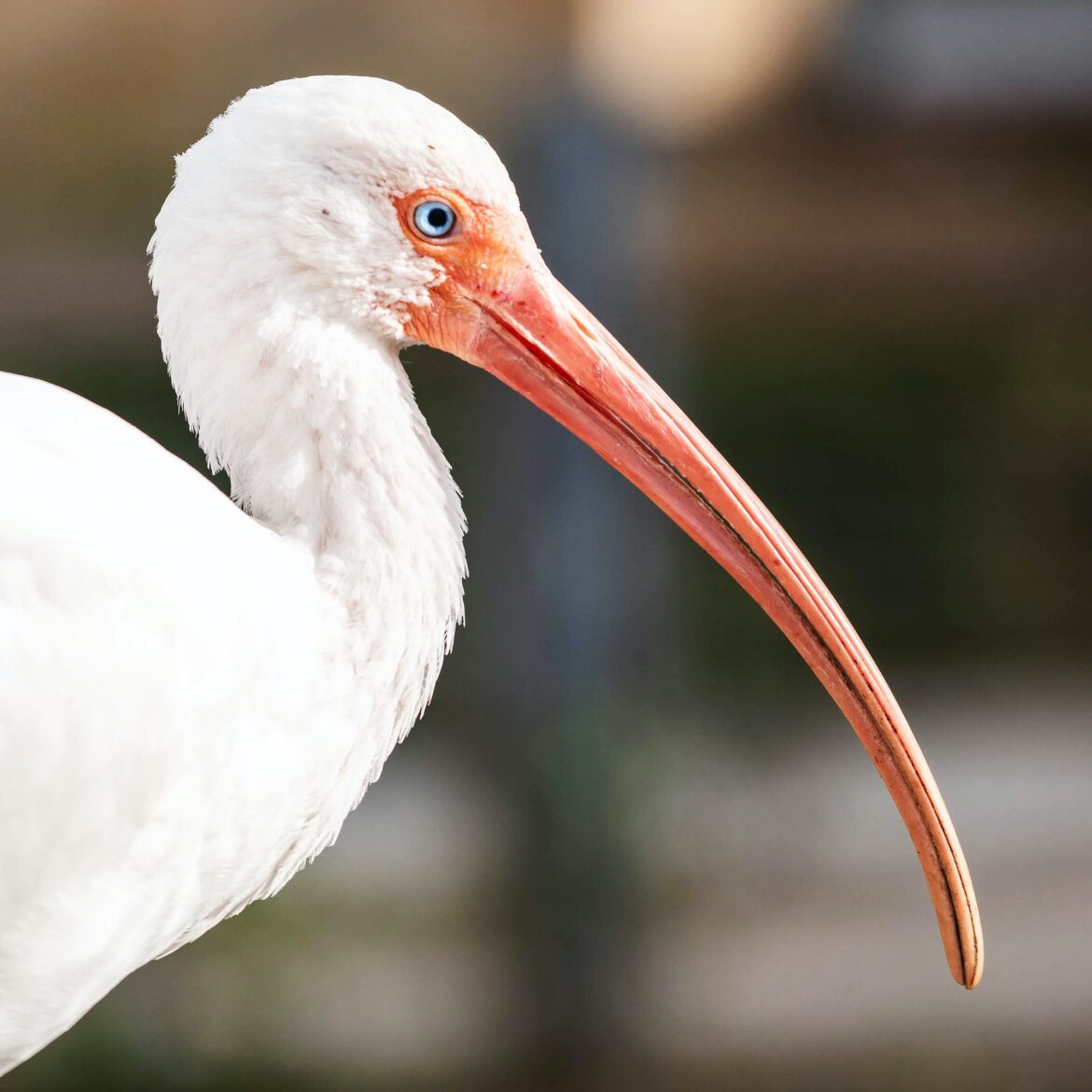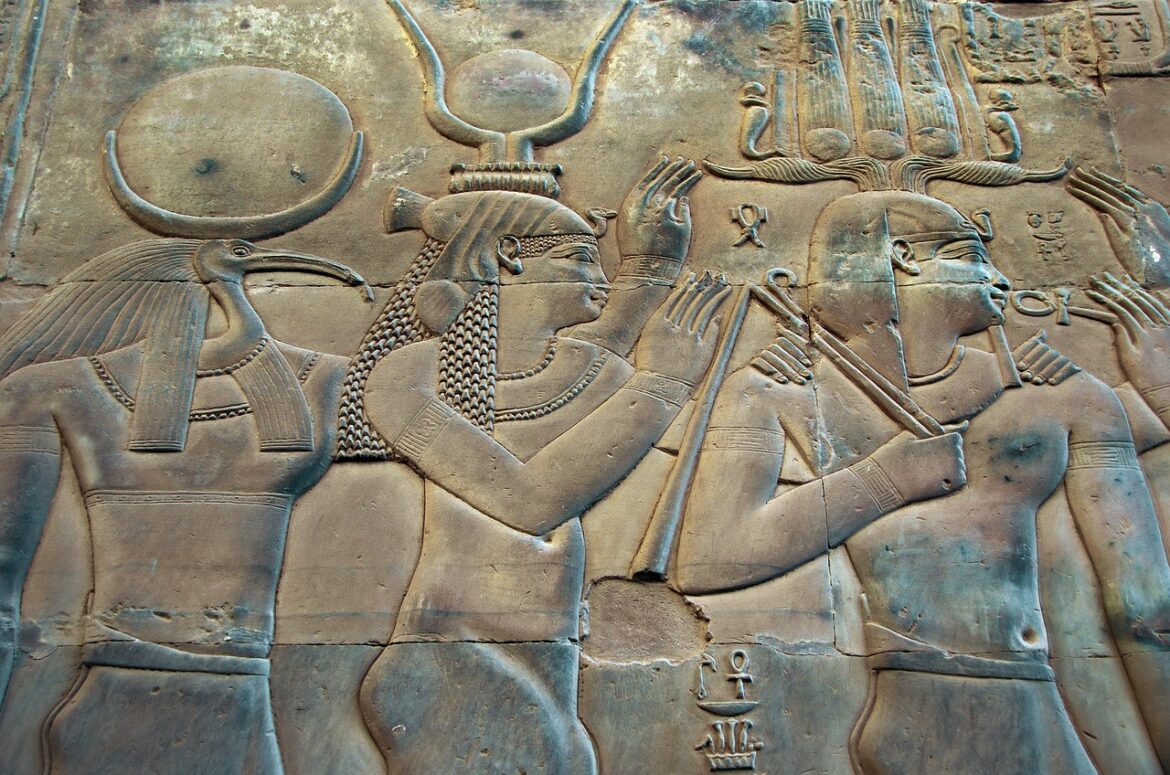
The white ibis is not a rare sight to see in Florida. They’re anecdotally more ubiquitous than pigeons, doves, bluejays and mockingbirds where I live. They outnumber herons, ducks and egrets, though perhaps not the grackle. I live in a zone that transitions from suburban to our watershed just a few miles away, which I frequently visit and write about.
Ibis have picked up some nicknames here too, mostly relating to their ubiquity, like the “Florida chicken” or the “Florida pigeon.” I’m unsure if the chicken reference has anything to do with their edibility, and I am not too eager to try it out.
Ibis are in some ways a dull bird, ignored by birdwatchers. They flock together or can be found in ones or twos, their shocking blue eyes contrasted by red flesh that is free of feathers on part or most of their heads. Their cousins, the glossy ibis and roseate spoonbill, will occasionally join their foraging parties (called congregations) in the shallow waters, followed sometimes by herons or egrets, where they look for small fish and crustaceans. They’re sociable and not shy and will happily snag unguarded food from the picnic table if they get the chance.
In many ways, they make part of the background of every day life here, and in general are little more remarked upon than lizards, cockroaches, tourists, or palm trees.

Photo by wired_optics on Pexels.
Which makes it all the more significant that they’ve been making themselves known to me lately. They’ve seemingly stepped through the veil of common occurrence and onto my mythopoetic magickal lens. I talk so much about creating partnerships and relationships with many beings, both physical and spirit-based (and a blend of both), in my book and in workshops and interviews on podcasts. Yet somehow the white ibis has escaped that recognition until recently, when one physically came to me, day after day, nasally honking at me as if trying to get my attention.
At first it was just on my way to my car on my daily trips to pick up my child from summer camp. Then it was as I went for walks. It didn’t do anything once it had my attention – it just looked at me for a few seconds and then continued on its way.
As each day passed it happened more and more, until the one became a dozen, hanging out near my vehicle, watching me while casually sipping water from a storm drain. They were honking, as if to say, are you forgetting something?
Ibis have lived in the same areas that humans have spent most of their time in as long as we’ve been humans. Coastal waters in warmer climates have been a haven for both of our species and thus there’s a long-standing familiarity between our overarching spirits. Food and mostly pleasant weather have their appeal, even if we have to endure occasional storms.
It’s no surprise then that the ibis has made it into our religions from the very earliest times, manifesting as Thoth in ancient Egypt with the sacred ibis, close relative of the white ibis. There are many, many resources to learn more about Thoth, and countless adherents to modern interpretations of the ancient Egyptian deity. For my purposes, as my relationship developed with the ibis in my neighborhood and with the oversoul of the ibis as a species, I was put into touch with aspects of Thoth as lord of the moon, writing, magick, the sciences, and, famously, judgment.
As frequently happened in the cultural exchange of the ancient world, certain gods were conflated with others from other backgrounds, and such was true of Thoth, who the ancient Greeks saw as a corollary of their Hermes. Eventually the two were syncretized into Hermes Trismegistus, the legendary author of the Hermetica. This is all the more interesting for me that this happens right at the moment I explore a deeper relationship with Hermes.
The curved beak of Thoth and the ibis is frequently represented as a lunar attribute, but it is also closely associated with the sickle, signifying an end, the harvest, or judgment. Thoth, in the form of an ape, is also the god who records — and enforces — the results of Anubis placing one’s heart on the scales of judgment to be weighed against a feather, the goal being equilibrium between the two, in order to be admitted to the afterworld.
The magick of the ibis in my life and the example they provide is more how flexible they are. As the world warms, they quickly adapt and shift their range further north. Also, they remind me that from the seemingly mundane can come the most profound of lessons. Encountering and developing a closer relationship with the ibis opened up whole worlds of new healing possibility and of reminders about my own commitments to the occult practices of writing and magick. The lunar imagery has its own occult connections, including magick, but also in illusions or those things hidden sub rosa.
Finally, there is the element of judgment, and the arrival of the ibis at this point in my life is a reminder to take stock. All of us are subject to cosmic will, so what then do I see as my personal legacy? At this pivotal time in human history, what can each of us do to further our evolution as individuals and work towards healing the oversoul of our species?
Modern lore from Florida says that the white ibis are always the last birds to leave before a hurricane and the first to return. There’s a poetry to the idea that as we await landfall, they are our companions until we cross the threshold where we can only go alone. But when we come out the other side, they will be there, waiting for us.
The Wild Hunt is not responsible for links to external content.
To join a conversation on this post:
Visit our The Wild Hunt subreddit! Point your favorite browser to https://www.reddit.com/r/The_Wild_Hunt_News/, then click “JOIN”. Make sure to click the bell, too, to be notified of new articles posted to our subreddit.
